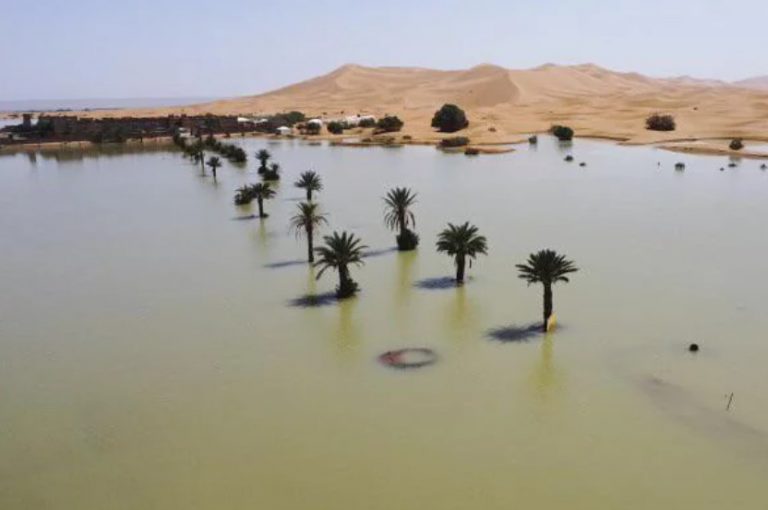In a rare weather event, parts of the Sahara Desert in Morocco were recently flooded after receiving more rainfall than they had seen in decades. Areas like the village of Tagounite, located 280 miles south of Rabat, saw over 100 millimeters (3.9 inches) of rain in just 24 hours, more than a third of its annual average rainfall. Houssine Youabeb from Morocco’s General Directorate of Meteorology remarked, “It’s been 30 to 50 years since we’ve had this much rain in such a short space of time.”
Footage from NASA satellites captured water flowing into the bed of Lake Iriqui, a lake that had been dry for 50 years. The unusual rainfall filled large pools of water across the desert, creating scenes of palm trees surrounded by water, an incredibly rare sight in one of the world’s driest regions. The rain is expected to replenish groundwater aquifers, vital for desert communities, though it is unclear if the water will be sufficient to combat the risk of drought.
While the rain provided some relief, it also caused destruction. The floods claimed over 20 lives in Morocco and Algeria, with 18 fatalities reported in Morocco’s rural areas. Additionally, 56 homes were destroyed, and infrastructure like drinking water systems, roads, and electricity were heavily impacted. Harvests in the region were also affected, prompting the Moroccan government to allocate emergency relief funds.
This flooding follows another recent disaster in Morocco, where a deadly earthquake struck last year, killing nearly 3,000 people and devastating communities in the High Atlas mountains. The combination of these events has left the country grappling with widespread damage and recovery efforts.
Despite the destruction, the replenished water sources may provide some long-term benefits to the region, especially for communities dependent on aquifers and dammed reservoirs. However, the impact on local infrastructure and livelihoods remains severe.




